Category: Ethics
Articles about end-of-life ethical issues including ethical dilemmas
Articles about end-of-life ethical issues including ethical dilemmas

Hospice care is often seen as the final chapter, but sometimes, it leads to unexpected recoveries. This article explores stories of resilience and healing in hospice care, reminding us that hope and recovery can still be part of the journey.

This comprehensive guide empowers families to navigate care plan meetings for terminally ill loved ones. Learn the significance of these meetings, how to prepare, communicate your loved one's needs, and advocate for their best interests. Gain insights into recognizing when meetings are necessary and the benefits of regular care planning. Equip yourself with the knowledge to ensure your loved one receives personalized, dignified care aligned with their wishes.

When a loved one is facing a serious illness, it can feel like standing at a crossroads. Each path represents a different way to care for them in their time of need. It’s a moment filled with tough choices and deep emotions. This article thoroughly explains hospice care, its philosophy, and the benefits it provides to patients and families facing terminal illness. Learn about the decision-making process, the hospice experience, and how to navigate this difficult choice with dignity and love.
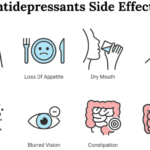
Dive into the world of Selective Serotonin Reuptake Inhibitors (SSRIs) and their role in treating depression. Discover the importance of medication half-life, the risks of serotonin syndrome, and why the chemical imbalance theory of depression is being challenged. Learn about the concerns of overprescription in older adults.
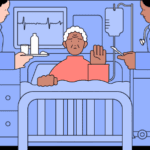
Discover the truth behind the myth that medications can keep terminally ill patients alive indefinitely. This article explores the psychological factors behind this belief and its consequences while providing compassionate strategies to cope with the reality of losing a loved one while ensuring quality end-of-life care.

Delve into the world of blood-based biomarkers for dementia detection. This article examines the science behind these tests, their potential to revolutionize early diagnosis, and the complex ethical considerations surrounding their use. Discover how these tests might shape the future of Alzheimer's care and research.
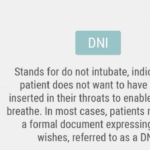
If you or your loved one has a severe illness, you may have heard about do not resuscitate (DNR) orders. This medical order tells the health care team what to do if the patient’s heart stops beating or they stop breathing. It is an incredibly crucial decision that can affect the quality and length of life. However, there are many myths and misunderstandings about DNR orders that can make it hard to choose what is best for you or your loved one. In this article, we will explain what DNR orders means and why it is important to understand it. We will also debunk the top ten myths about DNR orders and share the facts that can help you make an informed and respectful choice.

You may think that CPR is a miracle that can save anyone’s life, but that is not always the case. CPR is not practical for terminally ill patients, and it can cause more harm than good. In fact, studies show that only about 5% of terminally ill patients who receive CPR survive to leave the hospital. Many of them suffer from brain damage, broken ribs, or infections because of CPR.
This article aims to help you understand the truth about CPR for terminally ill patients. We will debunk ten common myths you may have heard or believed about CPR and provide you with accurate and reliable information. We will also help you make informed and respectful decisions about CPR for your loved one based on their wishes and values.

A groundbreaking skin test has emerged as a potential game-changer in the early detection of Parkinson's disease and related disorders. This article explores the science behind the test, its accuracy, and the ethical implications of early diagnosis. Discover how this innovative approach could revolutionize Parkinson's treatment and patient care.
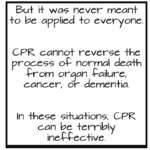
Choosing between full code and DNR for terminally ill patients can be challenging. This article explains the differences, benefits, and drawbacks of helping caregivers and families make informed decisions.
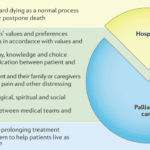
Hospice care is often misunderstood. A common myth suggests that once a patient with a terminal illness enters hospice, they lose control over their care. This article aims to dispel this misconception and highlight the central role of patient and family autonomy in hospice settings. It's important to note that this discussion primarily applies to patients receiving care at home or in non-facility settings, as facility-based patients may have less control over their care decisions.

Explore the complex decision of using antibiotics in end-of-life care. This article weighs the potential benefits against risks, considering comfort, quality of life, and ethical concerns. Learn how to make informed choices with your healthcare team for compassionate, patient-centered care in life's final stages.

Shielding children from death deprives them of understanding this natural part of life, leading to emotional and psychological consequences. This article explores why exposing children to the dying process is essential for their development and highlights the role of hospice care in supporting families during this time.

Discover how oral ketamine is emerging as a game-changer in palliative care, offering rapid relief for severe depression, anxiety, and emotional distress. This comprehensive guide explores its potential benefits, administration methods, and important considerations for patients and healthcare providers.
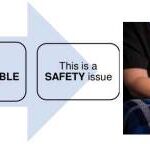
Discover how to use the CUS tool and Caring Feedback Model to advocate for your loved one's health. This guide empowers caregivers to communicate effectively with healthcare providers, ensuring their concerns are heard and addressed.
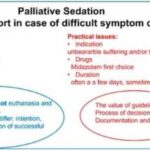
This guide covers the essentials of palliative sedation for hospice patients, including ethical dilemmas, timing, recommended medications, and monitoring effectiveness, ensuring comfort during the end-of-life journey.
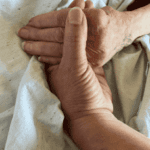
Learn how to communicate effectively with healthcare professionals when caring for a loved one with a terminal illness. Improve communication, advocacy, and coping skills to ensure your loved one receives the best care possible.
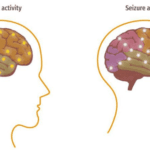
This article delves into the intricate relationship between dementia and seizures, offering insights on identification, safety protocols, and advocacy for caregivers.

This article delves into the growing importance of End-of-Life Doulas in hospice care. It provides insights into their role, their support to patients and families, and their impact on the quality of end-of-life care.

Hospice care in facilities can face challenges due to facility policies, staffing issues, and lack of coordination with hospice providers. This article sheds light on the struggles patients, families, and hospice nurses face in ensuring timely, appropriate care.

Uncover the importance of regular care plan meetings at healthcare facilities. This guide details participants, goals, benefits, and risks of non-participation.

Dive into the contrasting philosophies of purist and non-purist hospice nurses and doctors. Understand how their views on medication and patient care differ, shaping the terminal phase of a patient’s journey. This article highlights the delicate balance between medical intervention and quality of life in hospice care.

Explore the profound journey of the actively dying. This article unravels the reasons behind their lingering, examining medical interventions and the emotional need for closure. Gain insight into this delicate phase of life."

An article that guides families through understanding and exercising their rights to choose the best hospice care for their loved ones, ensuring their final chapter is written with compassion and respect.